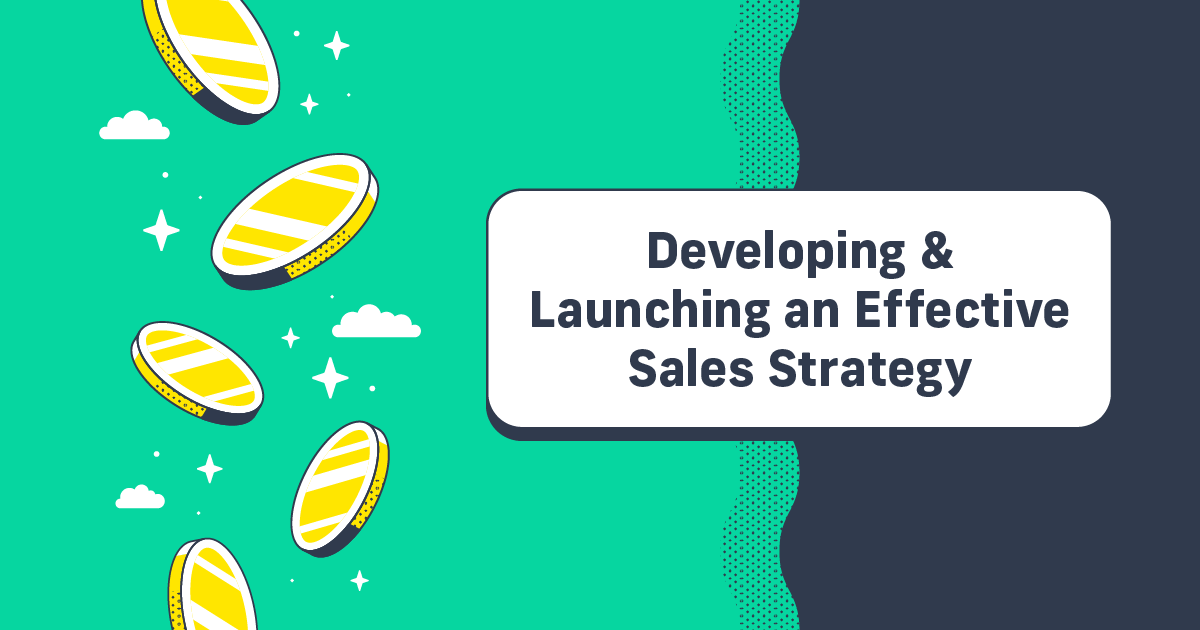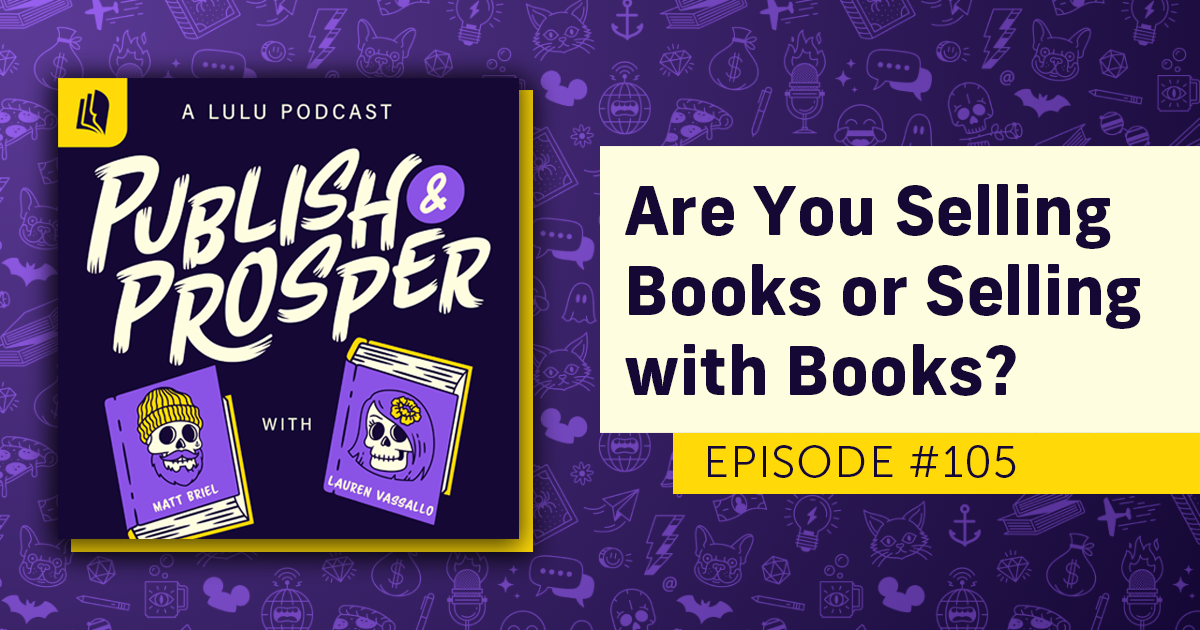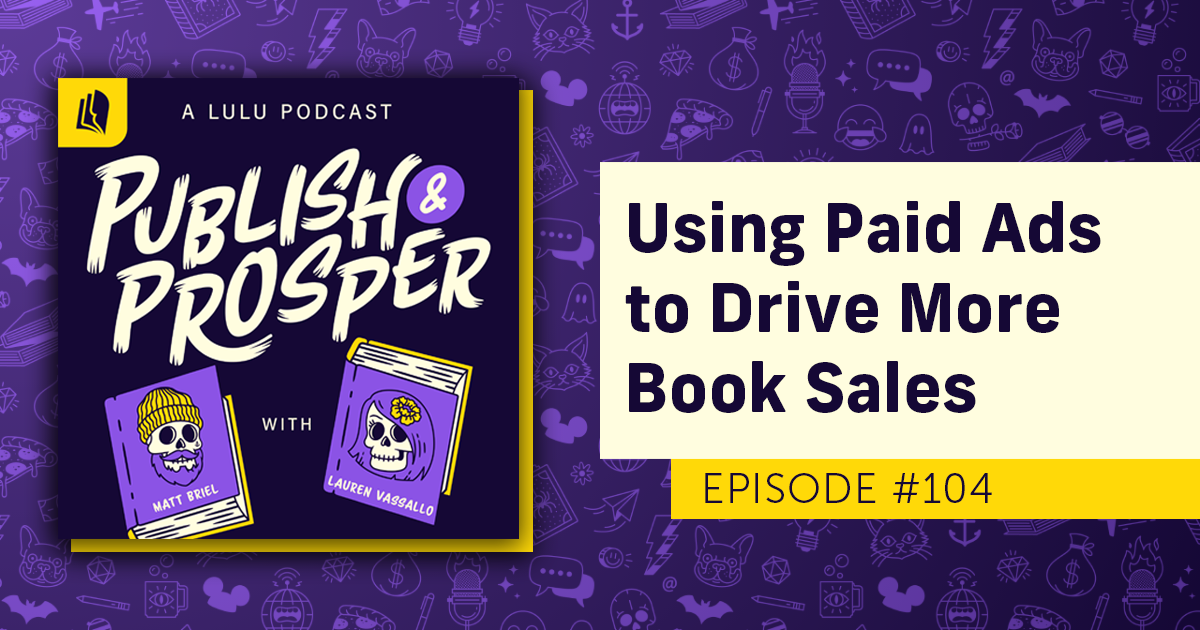The Three Phases of an Effective Book Marketing Campaign
What do good books and good marketing plans have in common? They both have an effective beginning, an engaging middle, and a powerful ending. So as you prepare your next book marketing campaign, we organize your efforts in three phases.
Knowing Your Audience Is the First Step
Before we explore the phases and elements of your book marketing campaign, it’s important to identify your book’s audience. Here are some simple things for you to consider as you build an audience profile:
- Describe who you think will be most likely to read your book in terms of gender, age, occupation, and any other relevant details.
- Write a simple statement explaining why someone will want to read your book.
- Identify where you think your readers look for information. If they’re engaged on social media, be specific about which platforms, such as Facebook or Twitter. What events do they attend? Can you establish a presence there as an exhibitor or speaker? Can you think of anywhere locally your target audience might congregate?
With a picture of your audience in mind, you will be better equipped to implement the three phases of an effective book marketing campaign.
Before You Publish
Ask the important questions.
Thinking about the following questions as you are working on your book is a good idea. You can always revise your answers as you engage in your book marketing efforts, but these questions are a great place to start.
What are your marketing goals?
Identifying goals that are observable, measurable, and attainable is the foundation of a solid marketing plan. Selling a million copies may be your aspiration, but your first (and even second) book marketing campaign needs realistic goals.
Keep in mind your objectives should not just be restricted to sales and marketing results. For example, you may want to set a goal to record a book trailer, blog twice a week, or plan an event. Set short-term targets you can feasibly hit quarterly, monthly, weekly, or even daily. Doing so will keep you focused and allow you to measure progress and celebrate successes along the way.
What are the competing book titles?
Search bookstores and online retailers for books that focus on a similar topic as your book. Your potential title should appeal to readers drawn to these topics, but you’ll want to have a unique spin that sets your book apart.
What’s your title?
Short and memorable is always best for book titles. Avoid obscure terminology and ditch words hard to pronounce or spell. In an attempt to be provocative or stand out, authors will occasionally choose unusual or confusing book titles. Don’t be tempted. Obscure words score points in Words with Friends, but they rarely work in book titles.
What will your cover design look like?
You’ve probably heard: “You can’t judge a book by its cover,” but readers do. That’s why it’s important to give serious consideration to your cover design. Go to your local bookstore or library and look for book covers that appeal to you. Notice the color, layout, image, and typography. These are all elements that contribute to an effective cover.
Don’t forget to consider how easy it is to read your cover at full-size and smaller, internet-friendly sizes. Your cover should be as eye-catching online as it is on bookstore shelves. Your book’s thumbnail-sized cover will be the central graphic you use during your book marketing campaign.
What will your back cover copy say?
Watch people at a bookstore. If a cover attracts their attention, they’ll pick up the book, flip it over, and read the back cover. You’ll want to give careful attention to the message on your book’s back cover. It could mean the difference between a pass and a purchase.
What can you do to position yourself as an author?
Think about how you can give yourself credibility. Depending on the subject or genre of your book, you may be able to cite particular experiences, professional accreditations, or other compelling factors that lend authority to your status as a writer.
This may seem more straightforward for nonfiction writers, but fiction writers have options too. Consider where your writing has been previously published, what positive reviews or feedback you received, any training you’ve received in the same field as your writing, and any awards or prizes you may have won.
What are your key selling points?
When you speak to book buyers, potential readers, or media representatives, you want to have a quick and compelling reason someone should buy your book. An effective pitch is key to gaining the initial attention of your target audience.
Before Your Book Is Released
Holding a copy of your book for the first time is exciting! Celebrate this significant milestone and use that excitement to maintain momentum as you transition into the second phase of your book marketing campaign.
Develop your book’s elevator pitch.
Sometimes called the “media hook,” this is the two-minute speech you’ll give to get media outlets interested in featuring your book. Above all, make sure your pitch is brief, clear, and unique. Don’t just talk about your book; talk about your book in your pitch. Be sure to convey something about your book that would make a compelling article or feature for that media outlet.
Plan your book launch event.
One of the key elements of your book marketing campaign should be a book launch event. This is a way to generate interest and start the grassroots promotion of your book. Launch parties also provide an outlet for you to sell your book directly to people and meet potential readers. If done correctly, it may even be a way to gain valuable media attention.
Be creative in your planning and location. Tie it into the theme or subject of your book. Consider whether an intimate, invitation-only event or a more public launch party is the right approach for you.
Most importantly: Don’t forget to have fun. Publishing a book is an accomplishment. Take pride in your achievement and enjoy sharing the special moment with others
Identify venues for additional book signings.
Most bookstores and libraries will welcome authors who are interested in speaking or holding book signings, but they’ll want to plan for them in advance. So even before your book is available, contact locations you think would host a book signing. However, don’t set a date until your book is available for purchase.
Conventional locales such as libraries, bookstores, and coffee shops aren’t the only places who can host events. A historical fiction writer might consider a local museum; a spa might be a good fit for self-help authors, and many places of worship welcome a variety of books. Opportunities abound for those willing to think outside the box.
Build your mailing list.
When it comes time to invite people to your events, have a quick and easy list you can use to distribute announcements. Prepare that list now and be sure to accommodate for both email and regular mail. Do not share the list with others, and blind carbon copy (bcc) the email addresses when you send a message to your entire list of email contacts.
Remember to add to the list as you continue marketing. At events, provide a sign-up sheet so people can provide their name, email, and mailing address. Include the same opportunity on your website. Always give people a simple way to unsubscribe or opt out of print and digital communications too.
Send your book launch invitations.
When you approve your galley copy at the end of the publishing process, send out your book launch event invitations (print and electronic) and include local members of the media in your guest list. Be sure your venue can accommodate the number of guests you’ve invited before you send out the invites.
Refine your marketing plan, calendar, and budget.
Sustained effort and constant evaluation are key to an effective book marketing campaign. Based on the framework you created before, continue to polish your plan as you learn more and make strides in achieving your goals.
After Your Book Is on the Market
Follow through.
The final phase, “post-publication,” might also be known as liftoff, because your book is now officially launched and ready to soar. It’s an exciting time, so make the most of it. This is by no means a complete list, but it’s a great starting point of actions you can take to raise awareness, build your platform, and attract the readers and fans you want.
Hold your book launch event.
Congratulations! You’re a published author. It’s time to celebrate. In fact, this is one of the most important things to do once your book is live. It’s a great way to recognize your hard work and share the joy of becoming a published author. This event is often the culmination of your initial book marketing campaign and the beginning of the long-term marketing plan.
Schedule other events.
You laid the groundwork in the previous phase. Now follow through and finalize a calendar of events where you can promote your book and sign copies. Don’t just think locally. As you travel, plan ahead and look for bookstores or venues that might be interested in having you sign your book.
Beyond readings, book signings, and speaking engagements, you can attend trade shows, festivals, and workshops. Some of these events draw large crowds, giving you the opportunity to gain credibility, promote your book and your name, and possibly even make direct sales. Events where other authors and publishing professionals, such as editors, agents, and publicists, congregate also present great learning opportunities.
Pitch to local and online media outlets.
Contact local reporters at newspapers and broadcast media (radio and TV) to get your book featured. The easier you can make it for them to understand why you and your book are newsworthy, the better shot you have of being featured. This is where the media hook you developed in the previous phase will come into play.
Identify websites and bloggers that might be interested in your topic and make a pitch to them. Many online media outlets include writers’ names and email addresses, making it easier to reach the right people. National coverage may be one of your goals, but the best place to start is locally.
Commit to a social media schedule.
One of the keys to social media is being clear on who your audience is and what message you’ll deliver. It’s also important to be consistent. You’re trying to build a relationship with potential readers, so as in any relationship, sporadic or infrequent contact is not a good thing. Plus, the more quality content you share with your audience members, the more they will have to share with their friends and followers on your behalf.
If you have a blog (and you should), encourage reader interaction with your posts. Comments allow for feedback from readers, offering you the chance to learn what they liked and disliked about a certain post or even a certain section of your book. Paying close attention to what your followers say can help you further understand your target audience and identify new opportunities to market to them.
Participation is also important to successful social media use. Engage in conversations to keep people interested in you and the content you’re sharing. To attract a loyal following, be responsive to people’s comments and questions; thank them for sharing your content and comment on their content; and share if it makes sense for your audience.
Evaluate and revise your plan.
Even the best-laid plans will not go exactly as you expect or hope. Be willing to test results and make adjustments.
If something works well, try to expand your efforts in that area. If something didn’t work, adapt or try something new.
It’s always a good idea to start your marketing efforts locally. As you learn what works best, you can adapt and improve your plan while you gradually expand your efforts into larger markets and nontraditional venues.
It’s Time to Get Started!
No matter where you’re at in your publishing journey, following the steps here will help you in your marketing efforts. Marketing is a journey too, but with this plan, you have a roadmap to help you along the way as you build your platform and reach potential readers.




